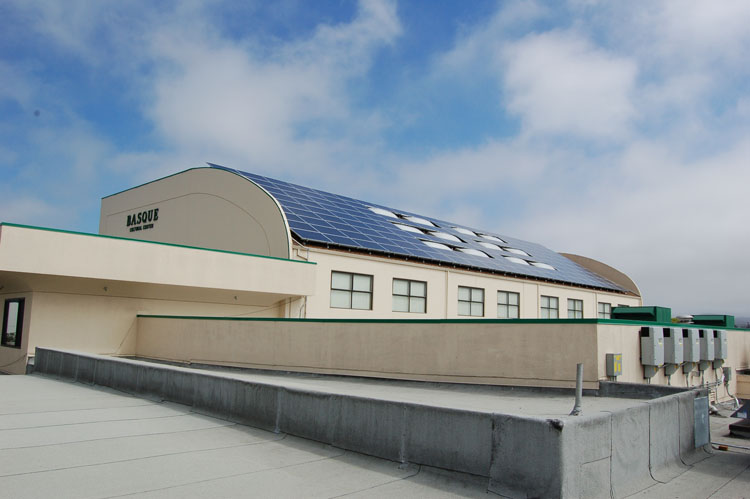Solar For Your Business or NonProfit
Commercial solar installations benefit an organization by reducing its operational costs and providing tax benefits. With a solar energy system, you can directly offset much of your electricity use if your roof is large enough, saving money while drastically shrinking your carbon footprint.
Consider the following questions when exploring commercial solar for businesses and nonprofit organizations:
- Who owns the building? Many businesses and nonprofit organizations in the San Francisco Bay Area lease their buildings. It is rare that a tenant-occupied building will go solar, unless the landlord is personally involved in driving the project forward. Because of that, Luminalt doesn’t provide proposals to tenants unless the landlord is involved from the outset.
- Will your roof accommodate a solar system large enough to significantly reduce your electricity bill? If you want your solar system to materially reduce your electricity bill, your roof will need to have enough unshaded space to install enough panels to significantly offset your total electricity usage. Your roof will also need sufficient unobstructed space around the panels to meet required fire setbacks requirements.
- Do you have the funds to pay for the system or are you looking to finance it? If you would rather finance your solar system than pay for it outright, there are a number of firms that will finance solar systems. To access that financing you will need to be able to show you have the financial strength to make the payments. Organizations that are struggling to pay their utility bills who want to go solar but don’t have the funds to do it are often unable to secure financing or financing on acceptable terms.
- Do you have a tax burden that will enable you to use the federal Investment Tax Credit (ITC)? Solar in the U.S. is largely incentivized through these credits. If you are a nonprofit or do not have a tax burden large enough to take advantage of the ITC, you may want to explore working with a third party that does have a tax appetite to own the solar system. That third party can take the tax credit and depreciation and may pass some of those tax benefits to you.

If you’re interested in a solar proposal for your business or nonprofit organization, please contact us and we will be happy to walk you through the steps.

The ITC for commercial solar systems is currently at 26% for 2020, steps down to 22% in 2021 and steps down to 10% beginning in 2022. Legislation has been introduced to increase the rate to 30% through 2025 as part of a stimulus package.
- Is there an electric rate schedule available to you that will work well with a solar system or should you consider solar + energy storage? Businesses are subject to time of use electricity rates that penalize usage during certain times of day. Many business rate schedules also have expensive demand charges. Because demand charges can happen when solar is not generating, solar may not provide a solution for that part of your bill. Solar + energy storage can address both. You can store the solar energy you generate and dispense that stored energy when rates are highest, providing protection against the highest rates at peak times, including demand charges.
- If you have more than one electrical meter, net energy metering aggregation may be available to you. In general, each solar system ties to one electrical meter. Through the Net Energy Metering Aggregation program, however, organizations can offset load from multiple meters on the same property, or on adjacent or contiguous properties. This enables you to effectively share your solar production across your operations as needs change.
- Would you like to enhance your organization’s sustainability? A recent Nielsen study of consumer behavior found that brands with legitimate sustainability claims fare better with consumers. Powering your operations with renewable energy is a very tangible way to demonstrate your environmental sustainability to your customers.
